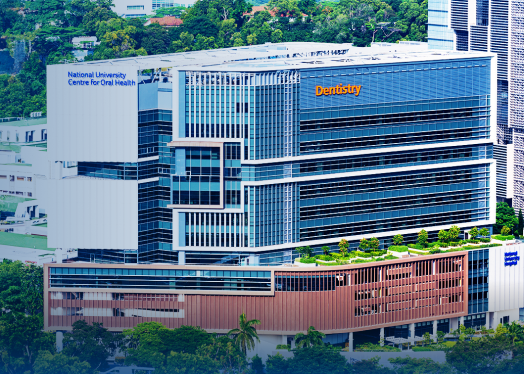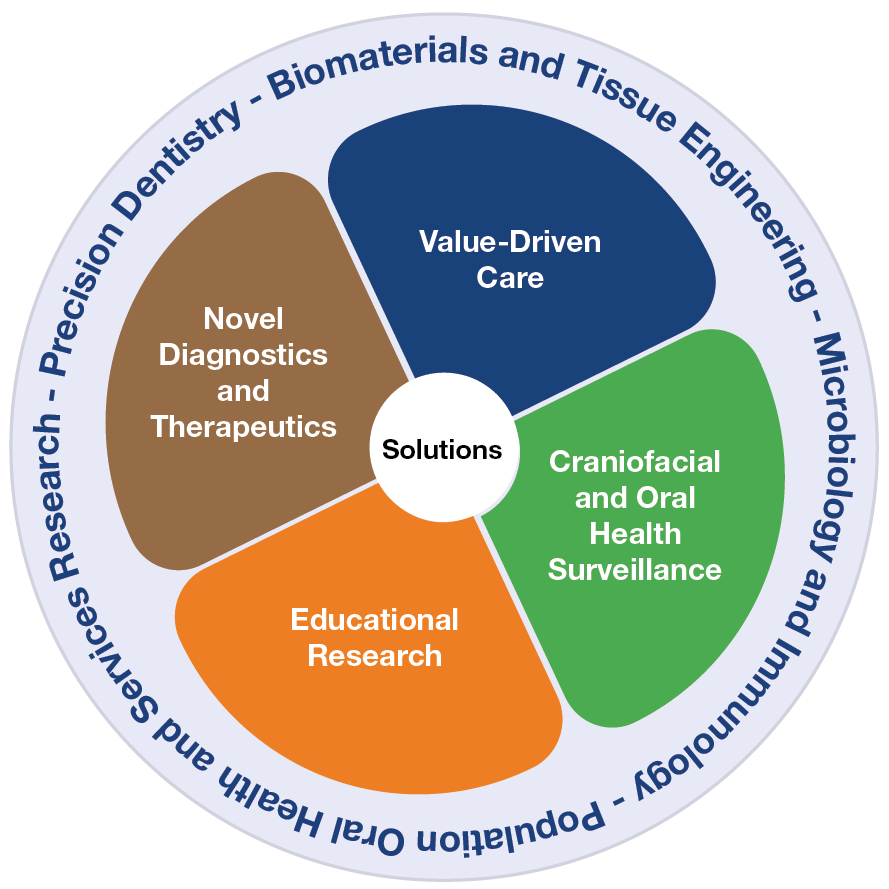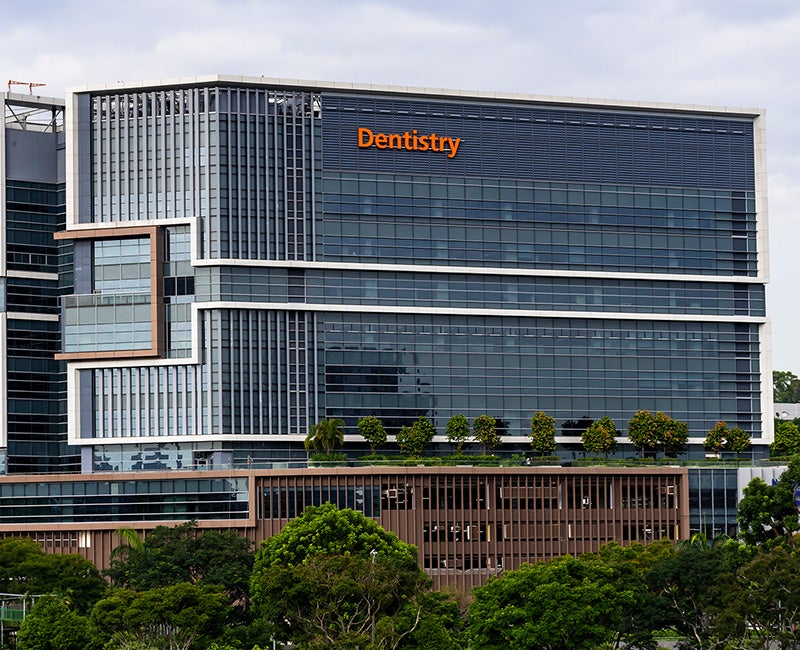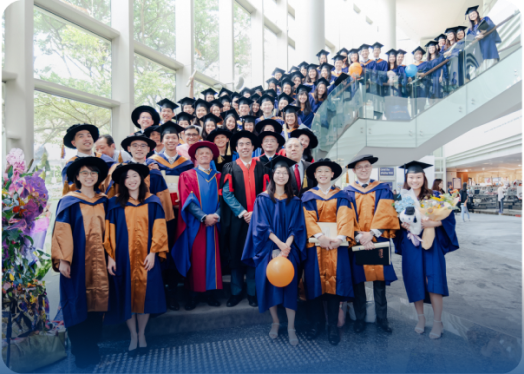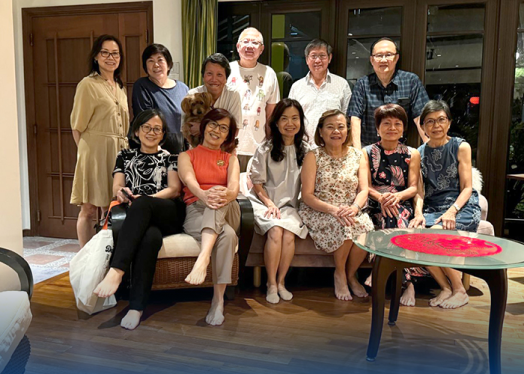- Home
- About
- Education
- Discover Education
- Undergraduate
- Prospective Students
- Student Life
- Undergraduate Overseas Elective Programme (Inbound)
- Graduate Studies
- Graduate Studies and MDS Specialist Committees
- Prospective Graduate Students
- Clinical Attachment Programme
- MDS Residency Programmes
- Endodontics
- Oral & Maxillofacial Surgery
- Orthodontics
- Paediatric Dentistry
- Periodontology
- Prosthodontics
- Graduate Diploma Courses
- Dental Implantology
- Geriatric Dentistry
- Graduate Degree (Research)
- Master of Science (MSc)
- Doctor of Philosophy (PhD)
- Lifelong Learning (CADE)
- Student Support
- Scholarships & Financial Aid
- Student Achievements
- Research
- Research Thrusts
- Graduate Degree (Research)
- Master of Science (MSc)
- Doctor of Philosophy (PhD)
- Research Groups
- Biomaterials and Tissue Engineering
- Microbiology and Immunology
- Population Oral Health and Services Research
- Precision Dentistry
- Oral Care, Health Innovations and Designs Singapore (ORCHIDS)
- Resources
- Biostatistics
- Clinical Research Unit
- Research Administration
- Research Laboratory
- Achievements
- Clinical Services
- Giving
- Alumni
- News
- Events
- Press
- Contact Us
Graduate Studies and Lifelong Learning
Master of Dental Surgery (MDS)
Residency Programmes
We offer structured residency training programmes, leading to Master of Dental Surgery (MDS), in six specialties.
- Endodontics
- Oral & Maxillofacial Surgery
- Orthodontics
- Paediatric Dentistry
- Periodontology
- Prosthodontics
Endodontics Specialist Committee
Programme Director:
Associate Programme Director
Dr Pei Yuan CHAN
Committee Members:
Clinical A/P Jeen Nee LUI, Adjunct A/P Chee Wee LEE, Dr Wataru ODE
Overview
The Endodontic Residency Training Programme is a 3-year full-time NUS curriculum comprising didactic, research and clinical training.
The goal of the training programme is to prepare graduates to be proficient endodontic practitioners and competent academics with clinical acumen. At the National University Centre for Oral Health (NUCOHS) where education, clinical service and research activities are housed under one roof, residents are encouraged to hone their clinical skills, challenge accepted norms, apply their knowledge in teaching and conduct meaningful research under the guidance of oral health scientists and clinician scholars.
Why This Programme:
The Endodontics programme will provide you with a strong foundation in the biological sciences, integrated with clinical practice. You will develop the skills to diagnose and treat oral and dental diseases, and manage a dental practice effectively. Graduates are expected to be adept at applying research and emerging technologies, committed to lifelong learning, and uphold professional, ethical, and social responsibilities.
Admission Information
Entry Requirements
For admission as a candidate to the course leading to the degree of Master of Dental Surgery, candidate must:
- Hold a basic dental degree qualification (Bachelor of Dental Surgery or equivalent).
- Have at least two years full-time clinical experience in general dentistry after graduation (excluding internship).
- Complete the TOEFL or IELTS if the native tongue or medium of undergraduate instruction is not English.
- The minimum acceptable scores are: TOEFL score – 580 (paper-based), 237 (computer-based), 92 (internet-based) & above or IELTS – 7. Test scores for TOEFL and IELTS are valid for 2 years from the test date.
Graduation Requirements
Candidates who have been admitted to the clinical residency training programme will be conferred the Degree of Master of Dental Surgery upon fulfilment of the following requirements:
- Complete the three-year residency training programme
- Pass the Final MDS Examinations
- Undertake a research project and publish a dissertation as a partial fulfilment for the award of Master of Dental Surgery degree
Programme Structure
- Didactic
- Research
- Clinical
- Undergraduate Teaching
Critical Reading and Literary Pursuits
A hallmark of the Endodontic Residency Training Programme at NUS, residents will spend 40% of their time reading the literature critically and taking part in research activities. Residents are expected to be intrinsically motivated to take responsibility for their own learning as well as that of their peers. Faculty will provide leadership through formal contact time and mentoring opportunities outside of the classroom.
Treatment Conferences
Through critical reviews of treatment plans, residents are trained to develop a biologically sound philosophy and evidence-based rationale for Endodontic Therapy. Regular presentations and engaging in Questions & Answers sessions among peers add value in developing a well-groomed clinician-academician.
Teaching Duties
Residents are trained to teach undergraduate endodontic students in Techniques of Root Canal Treatment on extracted teeth and models; Basic Endodontic Clinical Protocol; and supervising students in the Undergraduate Endodontic Clinic.
Basic Training in Research Methodology
This course teaches the principles of biostatistics, research design and scientific writing. Residents will understand and be equipped to review the literature and conduct meaningful research.
MDS Research Project & Milestones
Residents will complete a research project, defend the thesis and submit a manuscript of its to a reputable journal, as partial fulfilment of the requirements for the MDS degree in Endodontics. Residents are also strongly encouraged to present their research findings at scientific meetings in Singapore and overseas.
Key Milestones
Year 1: Literature review, protocol design, grant and ethics application
Year 2: Conduct the research project, share key findings at scientific meetings
Year 3: Write the paper and submit it by April of the year of graduation.
Pre-clinical surgical and non-surgical courses are conducted in a simulated and safe environment to upskill the first-year residents and facilitate mid-career residents’ practice of new skills before application in the clinics.
Managing patients’ endodontic needs in the NUCOHS and NDCS graduate clinics makes up 60% of the MDS residency programme. The resident will be trained to diagnose, treat and manage patients with endodontic problems with a focus on prevention and preservation. These include deep caries management and vital pulp therapy; treating the infected root canal system with complex morphology, management of procedural errors and emergencies; treatment of traumatic injuries; regenerating the infected immature root surgical endodontics; and being part of a care team to manage medically and dentally complex patients.
At NUS, team-based Endodontic care is provided with close collaboration with Orthodontics, Pain Clinic, Pediatric Dentistry, Periodontics, Prosthodontics, Oral Radiology and Oral & Maxillofacial Surgery.
The supervision of undergraduate dental students is an important component of specialist training. Senior residents (3rd year) will be involved in the supervision of third- and fourth-year undergraduate students. In addition to these formal teaching sessions, a senior resident in training may also be involved in the supervision and mentoring of all junior staff within the department (dental officers).
Core Courses
All MDS students will be required to:
- Attend a Clinical Dental Photography course during the first year of study.
- Attend the Basic Course in Implantology.
- Attend the Biostatistics course as well as the Graduate Research Methodology Module in preparation for the Research Thesis.
- (only for foreign students) Read the “SSM1205 The Nation’s health: Lesson from SARS” e-module.
- Attend the BCLS course.
- Attend any other compulsory courses as advised by the respective Programme Directors.
- Undertake a research project and publish a dissertation as partial fulfillment. Research protocols are to be submitted by end of first year of study.
Application Information
Applicants for the MDS Residency Programmes are required to apply on-line at https://gradapp.nus.edu.sg/apply and upload the relevant supporting documents.
Please refer to the useful links here to guide you through your application process.
Scholarship & Financial Aids
For more information on financial aid from the Faculty of Dentistry, please click here.
Hear from
Our Graduates
The postgraduate experience was extremely fulfilling and enriching for me. The training was holistic, covering both clinical and research aspects. I am thankful for the exceptional guidance from the supervisors and unwavering support from my peers.
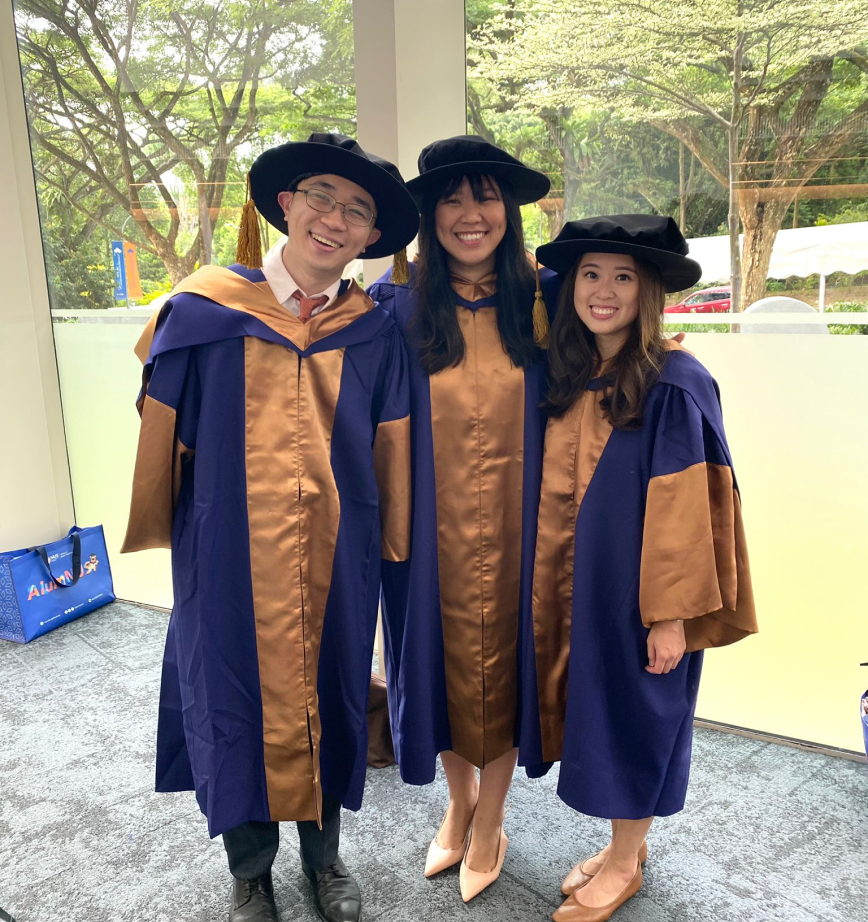
Dr Yu Jie SOH
Class of 2024
“It was a great privilege to learn from brilliant mentors, alongside dedicated fellow residents, in the NUS Endodontics residency training programme. The past 3 years have been tough but incredibly fulfilling, and I came away from the course with much more than clinical skill alone. I am particularly grateful for the opportunity to present my research work at an international conference, and be inspired by world-renowned endodontists who shared and discussed the new developments in our specialty. I highly recommend this programme to those keen on pursuing rigorous and well-rounded Endodontic training.”
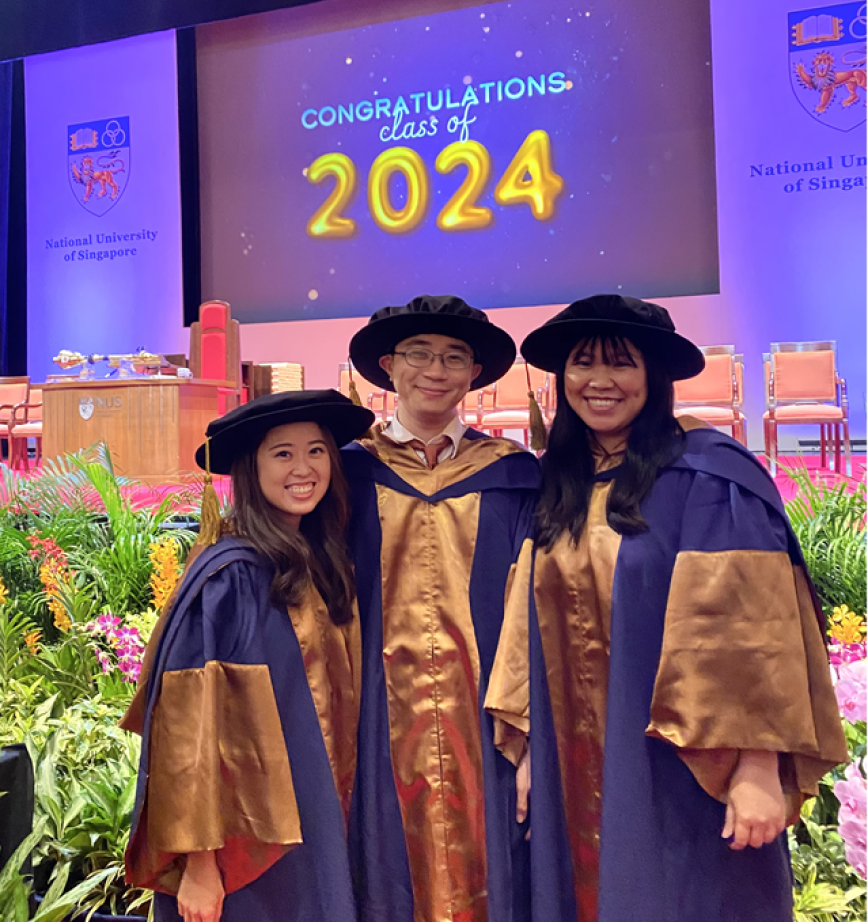
Dr Klare Shu Wen CHAN
Class of 2024
Oral & Maxillofacial Surgery Specialist Committee
Programme Director:
A/P Asher LIM
Associate Programme Director
Dr Rahul Harshad NAGADIA
Committee Members:
Overview
The Oral & Maxillofacial Surgery Residency Training Programme is a 3-year full-time NUS curriculum comprising didactic, research and clinical training.
The Oral & Maxillofacial Surgery residency programme enables graduates to acquire a strong foundation and practical experience in the specialty, equipping them with the competence to pursue higher specialty training. It also prepares them to effectively interface with other disciplines in the interdisciplinary management of patients, including those requiring orthognathic surgery and cleft lip and palate treatment. Additionally, residents gain experience in conducting research, critically evaluating scientific publications, and presenting clinical and research work in journals and at conferences.
Why This Programme:
The programme equips graduates with comprehensive theoretical knowledge essential for foundational competence in Oral and Maxillofacial Surgery. It provides both the academic foundation and practical experience necessary to progress into higher specialty training. Graduates will learn to collaborate effectively with other specialties in managing patients with complex conditions, particularly in areas such as head and neck disorders, orthognathic surgery, and cleft lip and palate care.
In addition, they will gain experience in conducting research projects, critically evaluating scientific literature, and presenting clinical and research findings in journals and conferences. Graduates will also be prepared to undertake independent research, contributing to the advancement of the field.
Admission Information
Entry Requirements
For MDS(OMS) applicants, you will only be considered for the Selection Interviews if you:
(i) have either of the following qualifications:
- MDS Exam or its equivalent
- Medical degree
OR
(ii) have passed the MDS (OMS) Selection Test which tests the applicant’s knowledge on basic medical sciences, including anatomy, dental anatomy, physiology, microbiology and pathology.
Registration for the MDS(OMS) Selection Test
You may register for the test via Link.
Please note that :
(i) Only those who meet the MDS(OMS) Entry Requirements should register for the OMS Selection Test. The entry requirements are as follows:
- Hold a basic dental degree qualification (Bachelor of Dental Surgery or equivalent).
- Have at least two years full-time clinical experience in general dentistry after graduation (excluding internship).
- Complete the TOEFL or IELTS if the native tongue or medium of undergraduate instruction is not English.
The minimum acceptable scores are: TOEFL score – 580 (paper-based), 237 (computer-based), 92 (internet-based) & above or IELTS – 7.
(ii) Registration fee for the selection test is $218 (inclusive of 9% GST) and it is non-refundable.
(iii) You should only make payment for the OMS Selection Test if you meet the entry requirements of MDS(OMS) programme shown under Point (i) and you are able to sit for the test in person at Faculty of Dentistry, NUS.
(iv) Closing Date for Registration is 15 October 2024.
(v) The selection test will be conducted in person at Faculty of Dentistry, National University of Singapore on 5 November 2024. The test result will not be released to Candidates.
(vi) Registration link for the test.
(vii) We will be in touch with you on the payment instructions after you have registered.
Graduation Requirements
Candidates who have been admitted to the clinical residency training programme will be conferred the Degree of Master of Dental Surgery upon fulfilment of the following requirements:
- Complete the three-year residency training programme
- Pass the Final MDS Examinations
- Undertake a research project and publish a dissertation as a partial fulfilment for the award of Master of Dental Surgery degree
Programme Structure
- Didactic
- Research
- Clinical
- Undergraduate Teaching

As part of the Programme, residents are required to undertake a research project under supervision. They are required to carry out practical work and to produce an original written document in connection with it. The topic of the project is finalised between the residents, the Director and the project supervisors. Every effort is made to allow the residents to work in an area in which they are interested.
The aim of the research project is to demonstrate that the residents can:
- State a problem clearly
- Identify a problem of significance to the Programme subject area
- Select and use appropriate methods to investigate the findings
- Report the findings and comment on their meaning
- Describe all these stages clearly
During the residency, the residents will review the relevant literature, devise and perform experiments, analyse the results and write the report. It is an invaluable exercise in improving skills such as organisation, critical judgement, literature search, result analysis and report production.
1. Admission and discharge of in-patients
Residents will clerk and work up patients for admission. This will familiarise the residents with patient history taking and examination and ordering of pre-operative investigations. Residents will liaise with the relevant specialties when the patients need multidisciplinary management.
2. Ward Round
Regular ward rounds would be conducted on the Department’s inpatients. Hospital and ward routines would be practised. The resident is responsible to the registrar/senior registrar and the consultant.
3. A & E and in-patient night duty
The resident is rostered for A & E stay-in call. He forms the first line of the A & E call roster for both dental and maxillofacial emergencies. During these postings, the residents will learn the management of acute conditions as encountered in the A & E department.
4. Out-patient Clinic
Residents will be assigned outpatient duties and operating sessions under local anaesthesia. The residents will also attend consultant and combined clinics. They will be exposed to the range of patients managed by the consultants.
5. Combined or subspecialty Clinics
Residents are scheduled to attend combined multidisciplinary clinics or subspecialty clinic during the MDS course.
6. OMS Journal Club Meeting
OMS journal clubs are held monthly, organized by the OMS Departments in National University of Singapore and the National Dental Centre. The resident is expected to participate in this meeting and to make presentations assigned to him.
7. Quarterly Implant Seminar and Clinico-Pathology Conference
Resident to present a literature review of a published paper, including relevant theory to synthesize and evaluate for a research study. CPC would allow clinicians and residents to have an all rounded perspectives of oro-facial pathology which includes clinical aspects and also the histopathology.
8. L A Operating Sessions
Residents will be allotted to perform minor surgical procedures.
9. G A Operating Sessions
The resident attends operating sessions of staff in the department/unit. He will participate in the surgery either as assistant or as a surgeon under supervision from the respective supervisors. The level of participation would depend on the complexity of the case, the level of skill of the resident and the level of expectation of his supervisors.
10. Attachments
The resident would be rostered to the following units for exposure relevant to his training:
a. Head and Neck Surgery
b. Plastics and Reconstructive Surgery
c. ENT
d. Intensive Care Unit
e. Anaesthesia
f. Accident & Emergency Department
g. Overseas Oral & Maxillofacial units
The period of each attachment is from one to three months.
General
As a member of the department, the resident is expected, from time to time, to undertake duties and responsibilities that the supervisor(s) or Head may assign him. As a staff, he is governed by the departmental guidelines and is expected to follow them.
The supervision of undergraduate dental students is an important component of specialist training. Senior residents (3rd year) will be involved in the supervision of third- and fourth-year undergraduate students. In addition to these formal teaching sessions, a senior resident in training may also be involved in the supervision and mentoring of all junior staff within the department (dental officers).
Core Courses
All MDS students will be required to:
- Attend a Clinical Dental Photography course during the first year of study.
- Attend the Basic Course in Implantology.
- Attend the Biostatistics course as well as the Graduate Research Methodology Module in preparation for the Research Thesis.
- (only for foreign students) Read the “SSM1205 The Nation’s health: Lesson from SARS” e-module.
- Attend the BCLS course.
- Attend any other compulsory courses as advised by the respective Programme Directors.
- Undertake a research project and publish a dissertation as partial fulfillment. Research protocols are to be submitted by end of first year of study.
Application Information
Applicants for the MDS Residency Programmes are required to apply on-line at https://gradapp.nus.edu.sg/apply and upload the relevant supporting documents.
Please refer to the useful links here to guide you through your application process.
Scholarship & Financial Aids
For more information on financial aid from the Faculty of Dentistry, please click here.
Hear from
Our Graduates
The NUS MDS (OMS) has provided me with an excellent platform to kickstart my Oral and Maxillofacial surgery career. The greatest part of the program is opportunity to experience surgical training from various institutions across Singapore. In addition, the overseas OMS attachment really broadened my perspective.
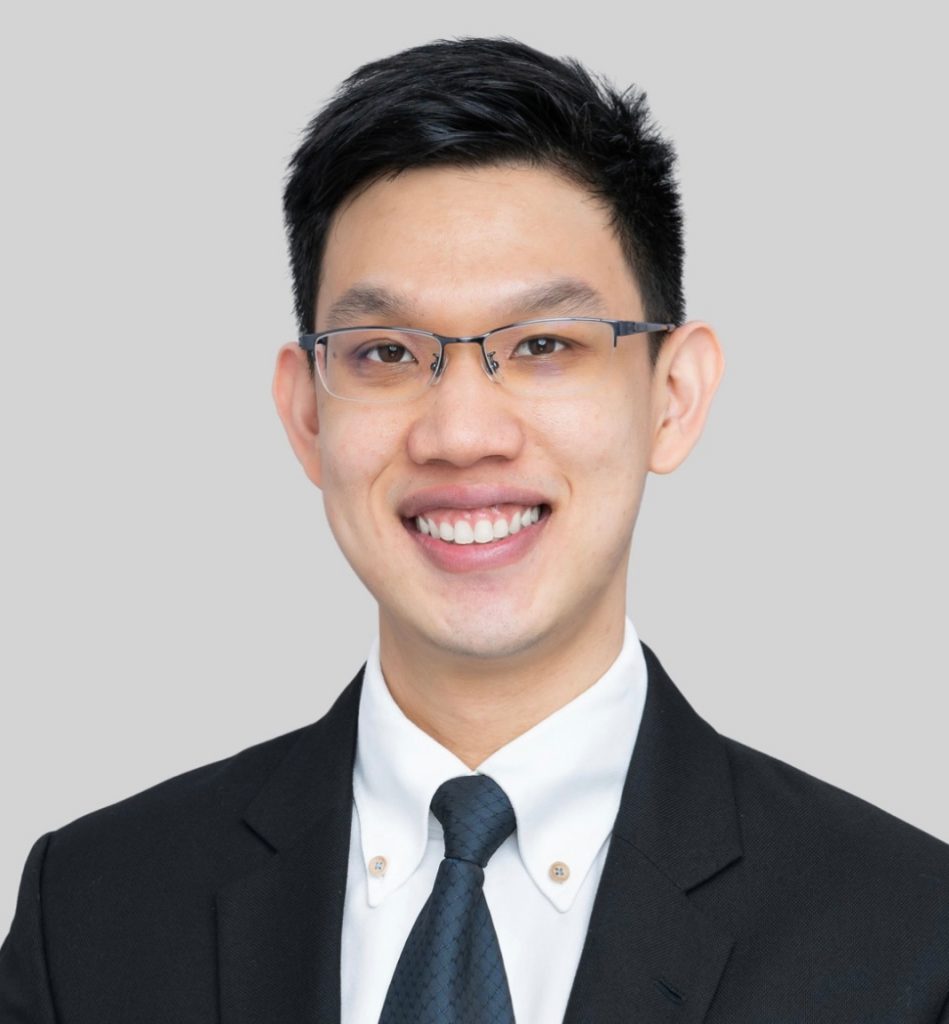
Dr Chee Weng YONG
Class of 2020
It was an incredible learning journey where I got to experience first-hand the joy of studying and practicing at the same time. The programme has enabled me to achieve more than what I thought I could.

Dr Yang ZHANG
Class of 2024
The MDS program was able to strike a good balance between evidence-based teaching sessions and clinical exposure from various institutions. After completing the program I feel more equipped with the skills to better manage patients in my field, and forged many friendships along the way.
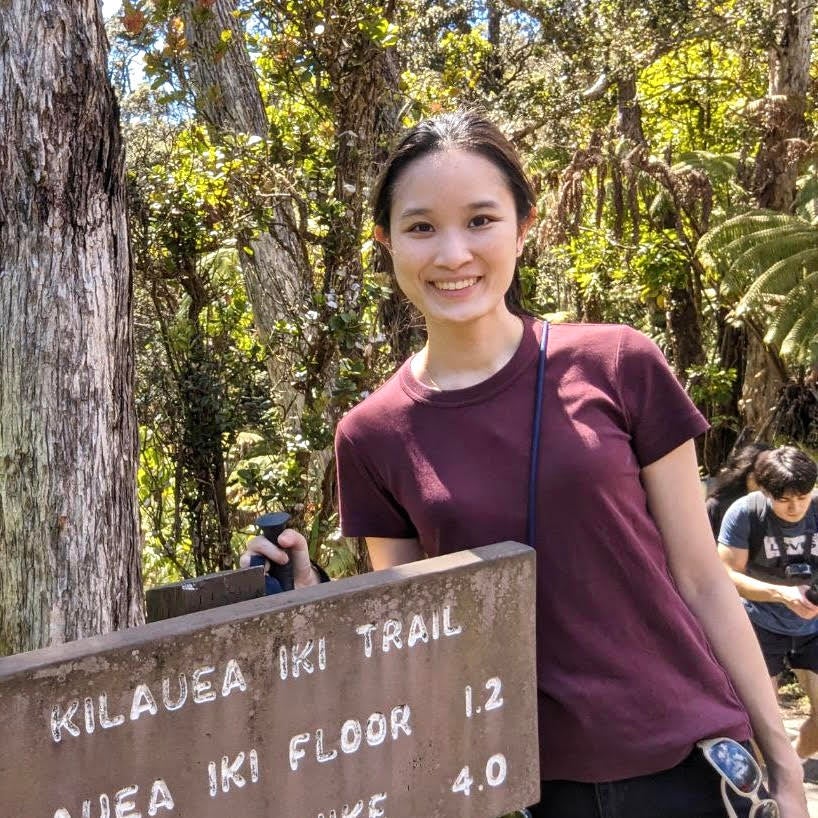
Dr Bernadette QUAH
Class of 2023
Orthodontics Specialist Committee
Programme Director:
Associate Programme Director
Dr Yi Lin SONG
Committee Members:
Dr Arthur Chong Yang LIM, Dr Bryce Pheng Hean LEE
Overview
The Orthodontics Residency Training Programme is a 3-year full-time NUS curriculum comprising didactic, research and clinical training.
The goal of the programme aims to train dentists in the science and art of orthodontics, cultivating future specialists and leaders in both academia and clinical practice. Structured as a rigorous 3-year Master of Dental Surgery course, the programme provides a comprehensive academic, clinical, and research-based education.
Why This Programme:
The Orthodontics programme will equipped you with a strong foundation in diagnosing dental and facial anomalies, planning and executing various orthodontic treatments – including interceptive and multidisciplinary care—and upholding high ethical standards. The curriculum emphasises scientific methodology, biomedical sciences, and the development of a critical and inquiring mind. Graduates also gain competencies in research, literature evaluation, lifelong learning, and the psychological aspects of care. The ORP is aligned with the latest ERASMUS guidelines for postgraduate orthodontic education, ensuring relevance and excellence on an international scale.
Admission Information
Entry Requirements
For admission as a candidate to the course leading to the degree of Master of Dental Surgery, candidate must
- Hold a basic dental degree qualification (Bachelor of Dental Surgery or equivalent).
- Have at least two years full-time clinical experience in general dentistry after graduation (excluding internship).
- Complete the TOEFL or IELTS if the native tongue or medium of undergraduate instruction is not English.
- The minimum acceptable scores are: TOEFL score – 580 (paper-based), 237 (computer-based), 92 (internet-based) & above or IELTS – 7. Test scores for TOEFL and IELTS are valid for 2 years from the test date.
Graduation Requirements
Candidates who have been admitted to the clinical residency training programme will be conferred the Degree of Master of Dental Surgery upon fulfilment of the following requirements:
- Complete the three-year residency training programme
- Pass the Final MDS Examinations
- Undertake a research project and publish a dissertation as a partial fulfilment for the award of Master of Dental Surgery degree
Programme Structure
- Classroom Teaching
- Clinical Training
- Research
- Undergraduate Teaching
Classroom teaching covers content related to clinical orthodontics, basic sciences specific to orthodontics, and experimental aspects of orthodontic research and related research.
Active participation and self-motivation in acquiring of knowledge are expected from the residents. Residents are encouraged to be proactive in exchange of ideas and knowledge during the course. Residents will be continually assessed on the level of quality of course work, commitment, active participation, and punctuality.
Learning in classroom teaching is achieved via three approaches:
Journal Review
Topical and recent articles
Seminars
Patterns in decision making
Challenging malocclusions
Topical seminars via the Flipped Classroom approach
Core Seminars (Y1 residents only)
Training Exercises
Active Recall exercises
Diagnostic Spotter exercises
Case Progression exercises
Schedule of Clinical Training
Clinical training in the ORP is conducted at the Faculty of Dentistry (NUCOHS) and at the National Dental Center Singapore (NDCS). Eight clinical sessions are rostered each week. Residents are expected to attend to all patients and clinical sessions promptly during their clinical rotations at NUCOHS and NDCS.
Supervisor to Student Ratio
The supervisor to student ratio for clinical supervision is 1:6 to provide a personalised mentoring of the students.
Appliance Systems Taught
Contemporary techniques in fixed and functional appliances are taught and used in clinical training. The principal fixed appliance technique taught at both NUCOHS and NDCS is the 022-slot size pre-adjusted edgewise fixed appliance system. Whenever indicated, residents are given the opportunity to manage patients using ceramic brackets. In cases which require skeletal anchorage, students will be instructed on the placement of Temporary Anchorage Devices (TADs).
Functional appliances commonly prescribed in clinical training include the Twin Block and the Bionator. Headgear and Facemask therapy, when indicated, are also taught during clinical training. Year 2 residents are given the opportunity to manage patients in the mixed dentition treatment using active removable and fixed appliances such as bite plates, the quad helix, and the 4×2 fixed appliance.
Students will also have the opportunity to be trained in the indication for and use of alternative appliance systems, e.g., Invisalign clear aligners and other active removable appliances. Exposure to these alternatives will be limited relative to fixed appliance treatment.
Multi-disciplinary Clinics
Residents will be exposed to multi-disciplinary clinical care of patients. Orthodontic residents will also have the opportunity to work with OMS residents on cases requiring orthognathic surgery. Occasionally, orthodontic residents will work with residents in prosthodontics or periodontics for joint management under supervision.
The research process and the scientific method are taught and assessed in the NUS Orthodontics Residency Programme. The satisfactory completion and oral defense of a research project before the Final MDS examination is a graduation requirement.
Research topics are generally assigned by the supervisors based on the thematic research areas in the Faculty of Dentistry and NDCS.
The oral defense of the MDS thesis is a comprehensive assessment of the resident’s
- Understanding of the topic studied
- Understanding of the experimental method employed
- Interpretation of the data and the inherent limitations
- Quality of the written thesis
A measure of the quality of the MDS research project is its publishability in a scientifically peer reviewed international journal. Final year residents are strongly encouraged to submit a manuscript to a peer-reviewed international journal in the January month of the final year.
The supervision of undergraduate dental students is an important component of specialist training. Senior residents (3rd year) will be involved in the supervision of third- and fourth-year undergraduate students. In addition to these formal teaching sessions, a senior resident in training may also be involved in the supervision and mentoring of all junior staff within the department (dental officers).
Core Courses
All MDS students will be required to:
- Attend a Clinical Dental Photography course during the first year of study.
- Attend the Basic Course in Implantology.
- Attend the Biostatistics course as well as the Graduate Research Methodology Module in preparation for the Research Thesis.
- (only for foreign students) Read the “SSM1205 The Nation’s health: Lesson from SARS” e-module.
- Attend the BCLS course.
- Attend any other compulsory courses as advised by the respective Programme Directors.
- Undertake a research project and publish a dissertation as partial fulfillment. Research protocols are to be submitted by end of first year of study.
Application Information
Applicants for the MDS Residency Programmes are required to apply on-line at https://gradapp.nus.edu.sg/apply and upload the relevant supporting documents.
Please refer to the useful links here to guide you through your application process.
Scholarship & Financial Aids
For more information on financial aid from the Faculty of Dentistry, please click here.
Hear from
Our Graduates
MDS was a tough but rewarding journey and thanks to the guidance I received from the faculty, I have grown and matured both as an individual and as a clinician. I am also thankful for the unwavering support from my family, friends and tutors. I will look back on my residency days fondly.

Dr Darren Zhi Ming TAN
Class of 2023
Paediatric Dentistry Specialist Committee
Programme Director:
Associate Programme Director
Dr Bien Wen Pui LAI, Dr Kok Siew TANG, Dr Pui Ling CHAY
Committee Members:
Adjunct A/P Mohamed Azharashid Bin MOHAMED TAHIR, Dr Betty Yuen Yue MOK
Overview
The Paediatric Dentistry Residency Training Programme is a 3-year full-time NUS curriculum comprising didactic, research and clinical training.
The programme is administered by the Division of Graduate Dental Studies, Faculty of Dentistry. The clinical and didactic training will be conducted at the NUS Faculty of Dentistry. The clinical training is also conducted at the School Dental Centre (Health Promotion Board) and National Dental Centre.
Why This Programme:
The Paediatric Dentistry Programme aims to graduate specialists proficient in comprehensive dental care for children and adolescents from birth to 18 years old. Emphasising a strong foundation in basic and clinical sciences, the programme prepares graduates to deliver evidence-based care, conduct research, and commit to lifelong learning and community engagement.
Graduates are trained in diagnosing developmental and oral diseases, managing dental trauma, treating special needs patients, planning age-appropriate treatments, and performing preventive, restorative, surgical, and interceptive orthodontic procedures. They are also skilled in behavior management, hospital-based care, interdisciplinary collaboration, and research design.
Admission Information
Entry Requirements
For admission as a candidate to the course leading to the degree of Master of Dental Surgery, candidate must:
- Hold a basic dental degree qualification (Bachelor of Dental Surgery or equivalent).
- Have at least two years full-time clinical experience in general dentistry after graduation (excluding internship).
- Complete the TOEFL or IELTS if the native tongue or medium of undergraduate instruction is not English.
- The minimum acceptable scores are: TOEFL score – 580 (paper-based), 237 (computer-based), 92 (internet-based) & above or IELTS – 7. Test scores for TOEFL and IELTS are valid for 2 years from the test date.
Graduation Requirements
Candidates who have been admitted to the clinical residency training programme will be conferred the Degree of Master of Dental Surgery upon fulfilment of the following requirements:
- Complete the three-year residency training programme
- Pass the Final MDS Examinations
- Undertake a research project and publish a dissertation as a partial fulfilment for the award of Master of Dental Surgery degree
Programme Structure
- Didactic
- Research
- Clinical
- Undergraduate Teaching
i. Basic Cardiac Life Support training
A hallmark of the Endodontic Residency Training Programme at NUS, residents will spend 40% of their time reading the literature critically and taking part in research activities. Residents are expected to be intrinsically motivated to take responsibility for their own learning as well as that of their peers. Faculty will provide leadership through formal contact time and mentoring opportunities outside of the classroom.
ii. Basic Medical Science (BMS) Course: September (Y1 – Vacation Time)
a. Regional Anatomy
b. Dental Anatomy and Histology
c. Pathology
d. Physiology
With effect from AY2011/2012, matriculated graduate students with Part I MDS or its equivalent will be exempted from attending the BMS course.
iii. MDS Biostatistics & GRMM course
The aim is to provide comprehensive working knowledge of various areas of the biological sciences that interrelate to Paediatric Dentistry. The topics will include:
a. Biostatistics & Epidemiology
b. Research Methodology
c. Evidence Based Dentistry
d. Biomedical Ethics
iv. Clinical Dental Photography
v. Paediatric Dentistry Scope
a. Growth and Development: To understand the basic processes of normal growth and development and how perturbations result in abnormalities.
b. Diagnosis and Treatment Planning
c. Pathogenesis, Prevention and Treatment of Oral Disease in Children and Adolescents
d. Restorative Techniques in Paediatric Dentistry
e. Community Paediatric Dentistry
f. Management of Dento-alveolar and Maxillofacial Trauma in Children and Adolescents
g. Behavioural Science and Behaviour Management of the Child and Adolescent
h. The Development of the Occlusion and its Management
i. Paediatric Oral Pathology, Oral Medicine and Oral Surgery
j. General Paediatric Medicine
k. Multi-disciplinary and Multi-agency Collaboration in Paediatric Dentistry
l. Specialist Paediatric Practice
v. Paediatric Dentistry Scope
a. Paediatric Dentistry Preparatory Course for Year 1 Residents (July)
b. Orthodontics Clinical Procedures Preparatory Course for Year 1 Orthodontics/Paediatric Dentistry Residents (July/August)
c. Mixed Dentition Preparatory Course for Year 1 Residents (August)
d. Paediatric Dentistry Tutorials/ Seminars (Weekly)
e. Mixed Dentition Tutorials and Case Presentations (twice/term≈ 8 times/year)
f. Journal Club (twice/term≈ 8 times/year, hosted by Paediatric Dentistry Society of Singapore)
g. Paediatric Dentistry Treatment Planning Seminars/ Multi-Disciplinary Seminars (twice/term ≈ 8 -10 times/year)
Each resident is required to initiate and complete an independent research project and/or scholarly activities which will require data collection and analysis, as well as the use of the elements of the scientific method. Residents will be required to report their results in a scientific forum. This forum may consist of a local, regional, national or international meeting, or an article submitted for publication to a refereed journal. Depending on the nature of the research project, the resident may be required to attend special courses/ attachment in relation to the project to develop adequate methodology. Residents’ research should involve literature review and critical analysis of scientific literature, experimental design, statistical analysis, and accurate reporting of findings.
Research efforts are expected to be self-motivated. However, in order to provide some structure, scheduled reviews of the resident’s research progress will be performed. These reviews are intended to assist the trainees/ residents in staying on track with their research. The recommended milestone for research progression is as follows:

i. Outpatient Clinical Care
a. Paediatric Dentistry clinical sessions
b. Mixed Dentition clinic
c. Inhalational Sedation clinic
d. Community Dentistry at Health Promotion Board
ii. Hospital Paediatric Dentistry (e.g., GA clinic)
iii. After Hours Emergency Department Service (KKCH)
iv. Mandatory Rotations
There will be mandatory electives (e.g., Oral Maxillofacial Surgery, Child Development Unit, KKCH rotations) that residents must attend. If schedule permits, residents may choose to take elective rotations in areas outside of Paediatric Dentistry that they may be interested in (e.g., molecular biology, microbiology, psychology, paediatric medicine, clinical disciplines in Prosthodontics, Orthodontics, Oral Medicine and Endodontics).
The supervision of undergraduate dental students is an important component of specialist training. Senior residents (3rd year) will be involved in the supervision of third- and fourth-year undergraduate students. In addition to these formal teaching sessions, a senior resident in training may also be involved in the supervision and mentoring of all junior staff within the department (dental officers).
Core Courses
All MDS students will be required to:
- Attend a Clinical Dental Photography course during the first year of study.
- Attend the Biostatistics course as well as the Graduate Research Methodology Module in preparation for the Research Thesis.
- (only for foreign students) Read the “SSM1205 The Nation’s health: Lesson from SARS” e-module.
- Attend the BCLS course.
- Attend any other compulsory courses as advised by the respective Programme Directors.
- Undertake a research project and publish a dissertation as partial fulfillment. Research protocols are to be submitted by end of first year of study.
Application Information
Applicants for the MDS Residency Programmes are required to apply on-line at https://gradapp.nus.edu.sg/apply and upload the relevant supporting documents.
Please refer to the useful links here to guide you through your application process.
Scholarship & Financial Aids
For more information on financial aid from the Faculty of Dentistry, please click here.
Hear from
Our Graduates
The MDS Paediatric Dentistry programme is a robust 3-year residency that offers a wealth of knowledge and experiences to humble and inspire. The course was undoubtedly challenging, but it has provided a strong and solid foundation for my journey as a specialist and beyond.
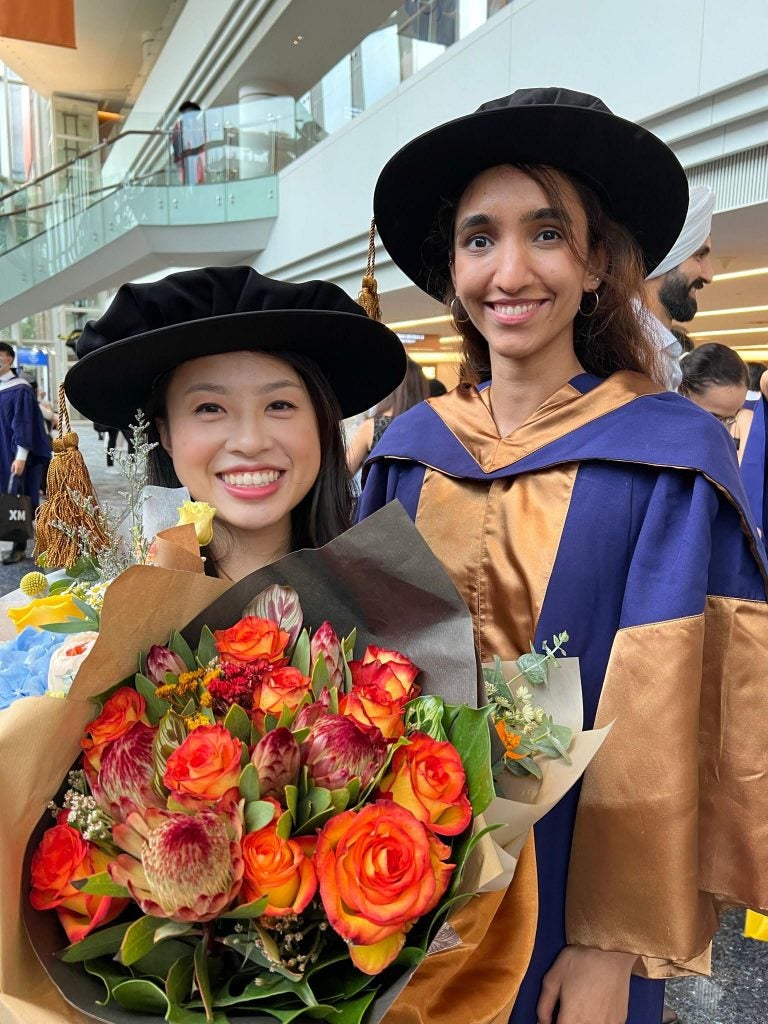
Dr Jeanette Ming Cheng CHUA
Class of 2022
I strongly endorse the MDS Paediatric Dentistry program at NUS for sharpening my clinical skills and understanding of paediatric patient care. This program is closely affiliated with not only key paediatric dental services at NUH, KKH and SGH but also the Student Health Center and Health Promotion Board. As a resident, I gained tremendous benefit from managing the gamut of paediatric cases with complex medical and trauma backgrounds.

Dr Ishreen Kaur DHILLON
Class of 2022
Periodontology Specialist Committee
Programme Director:
Associate Programme Director
Clinical A/P Marianne Meng Ann ONG
Committee Members:
A/P Jia Hui FU, Adjunct A/P Kong Mun CHUNG, Adjunct A/P Alphonsus Lai Hock TAY, Dr Wan Zhen LEE
Overview
The Periodontology Residency Training Programme is a 3-year full-time NUS curriculum comprising didactic, research and clinical training.
The programme is administered by the Division of Graduate Dental Studies, Faculty of Dentistry. The Clinical component of the programme will be conducted at the NUS Faculty of Dentistry and the National Dental Centre. Teaching will be undertaken by Private Practitioners specialising in the area of Periodontology and Implant Dentistry, staff from the Faculty of Dentistry and National Dental Centre.
Why This Programme:
The MDS in Periodontology is designed to train clinically skilled, research-oriented, and ethical periodontists dedicated to improving oral and periodontal health. The program equips graduates with deep knowledge in periodontal and implant dentistry, the ability to deliver evidence-based care, critically evaluate research, and work collaboratively in interdisciplinary teams.
Emphasising both surgical and non-surgical approaches, it fosters also strong communication skills and a commitment to lifelong learning and patient-centered care.
Admission Information
Entry Requirements
For admission as a candidate to the course leading to the degree of Master of Dental Surgery, candidate must:
- Hold a basic dental degree qualification (Bachelor of Dental Surgery or equivalent).
- Have at least two years full-time clinical experience in general dentistry after graduation (excluding internship).
- Complete the TOEFL or IELTS if the native tongue or medium of undergraduate instruction is not English.
- The minimum acceptable scores are: TOEFL score – 580 (paper-based), 237 (computer-based), 92 (internet-based) & above or IELTS – 7. Test scores for TOEFL and IELTS are valid for 2 years from the test date.
Graduation Requirements
Candidates who have been admitted to the clinical residency training programme will be conferred the Degree of Master of Dental Surgery upon fulfilment of the following requirements:
- Complete the three-year residency training programme
- Pass the Final MDS Examinations
- Undertake a research project and publish a dissertation as a partial fulfilment for the award of Master of Dental Surgery degree
Programme Structure
- Didactic
- Research
- Clinical
- Undergraduate Teaching
All residents are expected to attend and participate in all scheduled didactic courses in Periodontology, implant dentistry, multi-disciplinary courses, treatment planning seminars. Clinical photography, research methodology, basic immunology and microbiology
Each resident is required to carry out an original research project in a periodontally related field. This may be laboratory, animal or clinical research. Depending on the nature of the research project, the resident may be required to attend special courses/ attachment in relation to the project especially to develop adequate methodology.
The Resident is required to:
i. Develop a research protocol and formulate hypotheses following an adequate literature search
ii. Obtain permission for the performance of the research project with either human or human boards along the line of good clinical / research practice guidelines
iii. Keep adequate logs and reports pertaining to the research
iv. Assure use of appropriate statistical analyses in the handling of the data; the resident may if judged necessary consult with a statistician in this aspect
v. Interpret and perform analysis of the data according to international standards and within the framework of the whole research project
The clinical course aims to train the individual to be competent in the clinical skills in periodontal therapy and implant dentistry as an integral component of comprehensive oral health care. The clinical training involves:
i. Periodontal diagnosis and treatment planning
ii. Non-surgical periodontal therapy (oral hygiene education and motivation, scaling, and subgingival debridement, local drug delivery, anti-microbial therapy)
iii. Surgical periodontal therapy (conventional access periodontal flap, osseous surgery, mucogingival surgery, GTR procedures, bone grafting procedures)
iv. Clinical oral implant dentistry (implant surgery, peri-implant disease, and implant prosthesis)
v. Clinical oral medicine (relating to the periodontium)
vi. Interdisciplinary relationship
vii. Minor occlusal therapy
viii. Periodontal management of the medically compromised
ix. Use of microscopes in diagnosis and therapy
Each resident is responsible for the care of the patient assigned. If the patient is a case referred by undergraduates or fellow colleagues, there should be proper communication with the respective operator in the co-management of the patient. Timely follow-ups should be carried out (e.g. 3 and 6 months after completion of periodontal surgeries) to ensure appropriate maintenance care.
Over the course of 3 years, each resident is expected to have managed at least 30 clinical cases, of which 15 cases have to be maintained for at least 1 year. These cases should be of varying complexity so that the resident will gain experience in dealing with simple to complex periodontal cases as well as multi-disciplinary cases e.g. perio-prostho/endo/ortho/OMS cases. In addition, each resident is expected to:
- Perform at least 50 periodontal surgeries such as crown lengthening, periodontal flap surgery, gingivectomy, mucogingival procedures and guided tissue regenerative procedures
- Place at least 20 dental implants
- Complete 1 osteotome sinus lift
- Complete 1 lateral window sinus lift
- Complete 1 guided implant surgery i.e. starting from E&D, model scan, CBCT scan analysis, virtual surgery and design of surgical stent with Straumann Co-diagnostics, assessment of surgical stent prior to surgery and use of the stent during surgery.
By the end of the course, each resident should be proficient in diagnosis and treatment planning, non-surgical and surgical management of patients presenting with varying degree of periodontal destruction. He/She should be able to apply defined quality standards to his/her clinical performance and to implicate quality management into the treatment plan.
The supervision of undergraduate dental students is an important component of specialist training. Senior residents (3rd year) will be involved in the supervision of third- and fourth-year undergraduate students. In addition to these formal teaching sessions, a senior resident in training may also be involved in the supervision and mentoring of all junior staff within the department (dental officers).
Core Courses
All MDS students will be required to:
- Attend a Clinical Dental Photography course during the first year of study.
- Attend the Basic Course in Implantology.
- Attend the Biostatistics course as well as the Graduate Research Methodology Module in preparation for the Research Thesis.
- (only for foreign students) Read the “SSM1205 The Nation’s health: Lesson from SARS” e-module.
- Attend the BCLS course.
- Attend any other compulsory courses as advised by the respective Programme Directors.
- Undertake a research project and publish a dissertation as partial fulfillment. Research protocols are to be submitted by end of first year of study.
Application Information
Applicants for the MDS Residency Programmes are required to apply on-line at https://gradapp.nus.edu.sg/apply and upload the relevant supporting documents.
Please refer to the useful links here to guide you through your application process.
Scholarship & Financial Aids
For more information on financial aid from the Faculty of Dentistry, please click here.
Hear from
Our Graduates
I thoroughly enjoyed and grew as a dental professional in the MDS Periodontology program. It was an exciting learning journey throughout- from diagnosing accurately, treatment planning in a multi-disciplinary environment, to performing the whole spectrum of periodontal treatment. The program equipped me with the necessary thought processes and clinical skills to serve our patients in a tertiary dental setting.
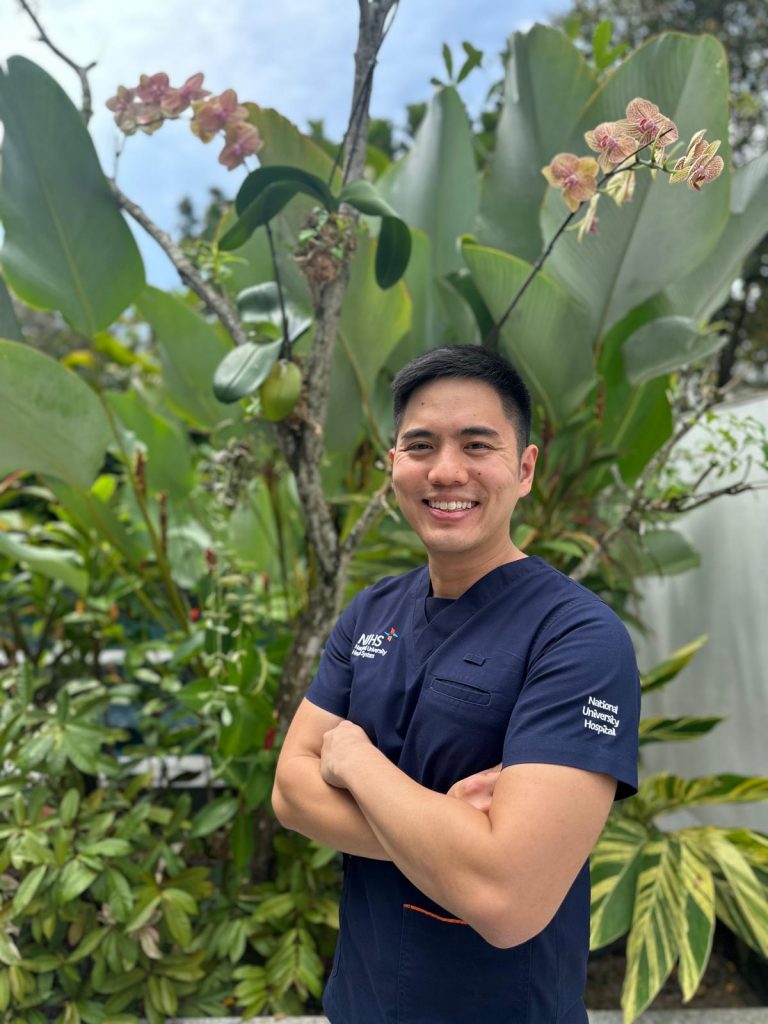
Dr Paul SIM
Class of 2022
Prosthodontics Specialist Committee
Programme Director:
Associate Programme Director
Clinical A/P Khim Hean TEOH
Committee Members:
Adjunct A/P Poey Ling LOH, Dr Frank Kong Fei LEE, Dr Heng Chuan QUEK
Overview
The Prosthodontics Residency Training Programme is a 3-year full-time NUS curriculum comprising didactic, research and clinical training.
Residents enrolled in this programme will be trained at the NUS Faculty of Dentistry and the National Dental Centre.
Why This Programme:
Upon completing the prosthodontics programme, the graduate will have a strong foundation in basic sciences, proficiency in diagnosis, planning, and treating complex prosthodontic cases, and advanced laboratory skills to evaluate and communicate effectively with technicians. They will also be skilled in interdisciplinary collaboration for comprehensive patient care and capable of conducting independent research.
Admission Information
Entry Requirements
For admission as a candidate to the course leading to the degree of Master of Dental Surgery, candidate must:
- Hold a basic dental degree qualification (Bachelor of Dental Surgery or equivalent).
- Have at least two years full-time clinical experience in general dentistry after graduation (excluding internship).
- Complete the TOEFL or IELTS if the native tongue or medium of undergraduate instruction is not English.
- The minimum acceptable scores are: TOEFL score – 580 (paper-based), 237 (computer-based), 92 (internet-based) & above or IELTS – 7. Test scores for TOEFL and IELTS are valid for 2 years from the test date.
Graduation Requirements
Candidates who have been admitted to the clinical residency training programme will be conferred the Degree of Master of Dental Surgery upon fulfilment of the following requirements:
- Complete the three-year residency training programme
- Pass the Final MDS Examinations
- Undertake a research project and publish a dissertation as a partial fulfilment for the award of Master of Dental Surgery degree
Programme Structure
- Didactic
- Research
- Clinical
- Undergraduate Teaching
This will cover the areas of applied basic sciences relevant to prosthodontics, advanced fixed and removable partial and complete denture prosthodontics, theories of occlusion, dental materials science, maxillo-facial prosthodontics and dental implants. Lectures on other disciplines, which are related to prosthodontics such as dental radiology, endodontics, oral maxillo-facial surgery, orthodontics and periodontics, will also be given. There will also be literature review sessions on various aspects of Prosthodontics and related subjects.
The resident is required to complete a research project and defend this thesis as partial fulfilment of the MDS degree in Prosthodontics. Research protocols are to be submitted by the end of year one. Candidates are encouraged to write up projects for publication in refereed journals.
The resident will be trained to diagnose and treat patients with complex prosthodontic problems and learn to manage patients who require full mouth rehabilitation using fixed and removable prostheses and implant supported prostheses with an emphasis on cases requiring interdisciplinary care and coordination. He will also be exposed to the management of patients needing maxillo-facial prostheses. The number and type of cases treated will be recorded.
The supervision of undergraduate dental students is an important component of specialist training. Senior residents (3rd year) will be involved in the supervision of third- and fourth-year undergraduate students. In addition to these formal teaching sessions, a senior resident in training may also be involved in the supervision and mentoring of all junior staff within the department (dental officers).
Core Courses
All MDS students will be required to:
- Attend a Clinical Dental Photography course during the first year of study.
- Attend the Basic Course in Implantology.
- Attend the Biostatistics course as well as the Graduate Research Methodology Module in preparation for the Research Thesis.
- (only for foreign students) Read the “SSM1205 The Nation’s health: Lesson from SARS” e-module.
- Attend the BCLS course.
- Attend any other compulsory courses as advised by the respective Programme Directors.
- Undertake a research project and publish a dissertation as partial fulfillment. Research protocols are to be submitted by end of first year of study.
Application Information
Applicants for the MDS Residency Programmes are required to apply on-line at https://gradapp.nus.edu.sg/apply and upload the relevant supporting documents.
Please refer to the useful links here to guide you through your application process.
Scholarship & Financial Aids
For more information on financial aid from the Faculty of Dentistry, please click here.
Hear from
Our Graduates
I had an enriching experience in the NUS Graduate Prosthodontics programme; it equipped me with the technical skills and knowledge necessary to succeed in this field. It also facilitated entry to the prestigious community of Prosthodontists in Singapore. I have no regrets committing to the programme and would encourage truly interested candidates to apply. If you have the nerve and the verve, join us; but be warned, it is not an easy 3-year journey!
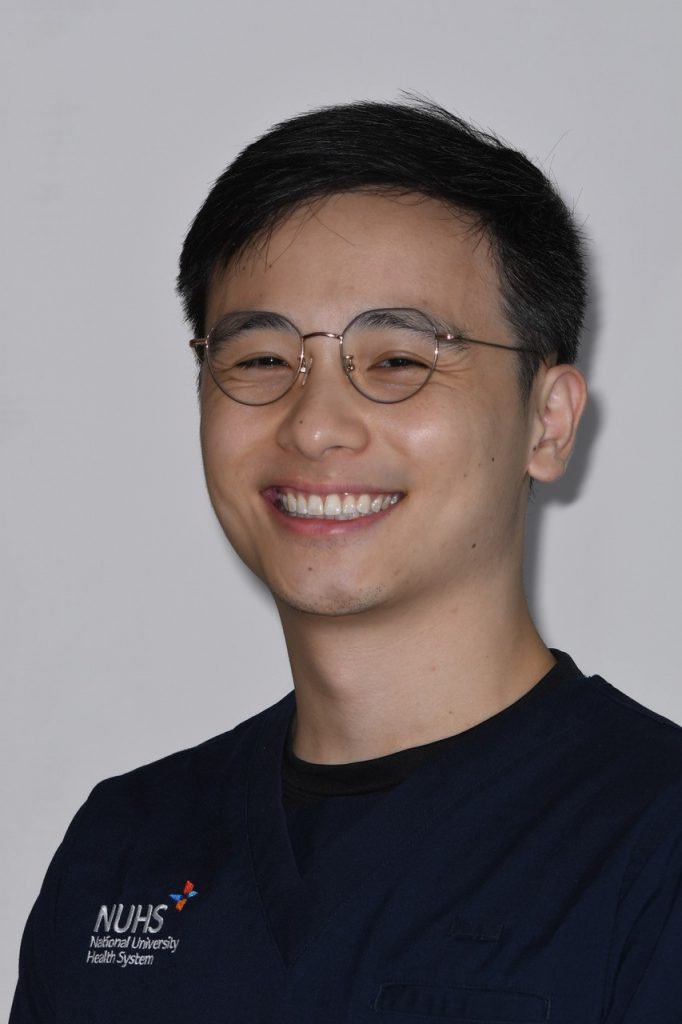
Dr Charles Beng Kai TAN
Class of 2024

